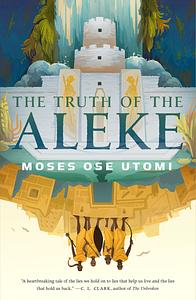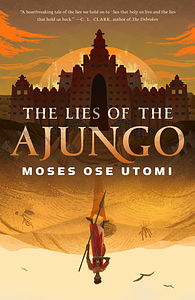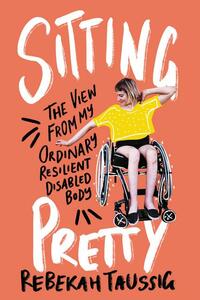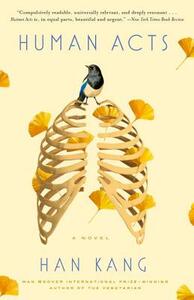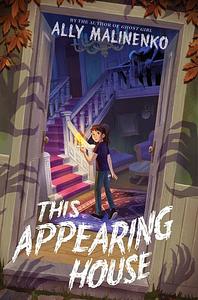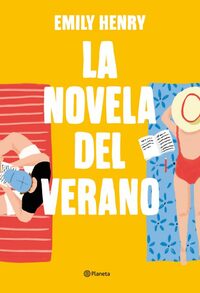Take a photo of a barcode or cover
underscorelsa's Reviews (186)
adventurous
reflective
medium-paced
Oh my God was this an amazing conclusion. I’m just writing down thoughts for now, don’t mind me.
Agba was a really well rounded character, I think he was my favorite hero out of all of them.
I LOOOVVVE the “history always repeats itself”.
Not 5 stars because up to 80% I really thought this could have worked as a standalone, with references to past installments but nothing else. Plus, water has me very confused. How did no one else before know of its power? Why did they use God’s Eyes then?
Agba was a really well rounded character, I think he was my favorite hero out of all of them.
I LOOOVVVE the “history always repeats itself”.
Not 5 stars because up to 80% I really thought this could have worked as a standalone, with references to past installments but nothing else. Plus, water has me very confused. How did no one else before know of its power? Why did they use God’s Eyes then?
adventurous
tense
“In many ways, I believe Tutu is who I wish myself to be—someone who is searching for the truth and, when they find it, responds with power and action. Osi, however, is who I fear myself to be—someone who is searching for the truth so fervently that he can be easily manipulated by anyone who purports to have it.”
I kind of have mixed feelings. It felt like a filler book of sorts, to connect what happened in book one to what it has set up for book three. It was unsettling but necessary in a way?
This book followed a very similar structure to book 1, which was fine since it worked the first time and I know that it was to take it and twist it, but the first part felt too similar to ignore. It did not land as strongly for me.
For the rest of the book, this was a pretty different vibe, which isn’t a bad thing at all, but I wasn’t expecting it. I went in thinking we would get something that was fable-like as well, but it felt messier, a bit more confusing. I know that it is intentional, but still. I didn't get that wow factor from this book despite the twists and turns.
Osi as a main character was heartbreaking. He wants so badly to do the right thing but ends up getting played from all sides, and that hurts to watch. He is just a kid and he is being used as a symbol of power, seeing who can gain the most from him for power, and he can't realize it. Once again, I thought the commentary on propaganda and power and how people weaponize truth and "righteousness" were done extremely well.
I kind of have mixed feelings. It felt like a filler book of sorts, to connect what happened in book one to what it has set up for book three. It was unsettling but necessary in a way?
This book followed a very similar structure to book 1, which was fine since it worked the first time and I know that it was to take it and twist it, but the first part felt too similar to ignore. It did not land as strongly for me.
For the rest of the book, this was a pretty different vibe, which isn’t a bad thing at all, but I wasn’t expecting it. I went in thinking we would get something that was fable-like as well, but it felt messier, a bit more confusing. I know that it is intentional, but still. I didn't get that wow factor from this book despite the twists and turns.
Osi as a main character was heartbreaking. He wants so badly to do the right thing but ends up getting played from all sides, and that hurts to watch. He is just a kid and he is being used as a symbol of power, seeing who can gain the most from him for power, and he can't realize it. Once again, I thought the commentary on propaganda and power and how people weaponize truth and "righteousness" were done extremely well.
As a sidenote, I thought Hizo was going to be a more developed character. Some of the things he said and the way he acted with Osi were leading me to believe that he really was going to help him to get out, but then nothing happened. Maybe it's left for the third part, but I guess something was being set up and it didn't blow up later.
Overall, the story itself just didn't grab me the same way book one did, but the themes of truth and deception still did land. I am extremely curious to know what the author is going to do for the conclusion. I love that this series is something extremely different and new. I love the ambition and the message, as well as the postscript. I just went with an expectation that was too high up.
adventurous
reflective
tense
There is a lot to say about this book, honestly. This was a very short read and yet it was SO impactful. You could already feel yourself inside of this world within the first 5 pages, and that's all it needed for it to be masterful.
There is no water in the City of Lies. The Ajungo give a bit of water (not enough, mind you) in exchange of the citizen's tongues. So many have tried to get more water outside of the city, yet they never come back. Tutu and his mother desperately need water, so he goes out to find some. In the desert, he doesn't find what he expected to find, and yet grows more and more powerful.
And I'm leaving there. This tale is about oppression, propaganda and how easy it is to fall for it when you don't know you're being exposed to it, and how important outside perspectives are.
I personally LOVED the little adventure and action plot we had, it was PERFECT. Just what I have been looking for for a long time, just exceptional, no notes. The world building was amazing. In just a few sentences, I felt like I had read pages and pages of descriptions, in the best way possible; nothing more was needed.
Overall, truly an impactful book.
There is no water in the City of Lies. The Ajungo give a bit of water (not enough, mind you) in exchange of the citizen's tongues. So many have tried to get more water outside of the city, yet they never come back. Tutu and his mother desperately need water, so he goes out to find some. In the desert, he doesn't find what he expected to find, and yet grows more and more powerful.
And I'm leaving there. This tale is about oppression, propaganda and how easy it is to fall for it when you don't know you're being exposed to it, and how important outside perspectives are.
I personally LOVED the little adventure and action plot we had, it was PERFECT. Just what I have been looking for for a long time, just exceptional, no notes. The world building was amazing. In just a few sentences, I felt like I had read pages and pages of descriptions, in the best way possible; nothing more was needed.
Overall, truly an impactful book.
informative
"The disease is where the cure is not, and the cure is where the disease is not."
I learned SO much through this book, and I know John has SO much more knowledge on this topic and could ramble on and on and on and this book is just so short.
"We must fight not just for reform within the system but also for better systems that understand human health not primarily as a market, but primarily as a shared priority for our species."
Don't get me wrong though, the information and the viewpoint this book offers is eye-opening, truly. And it makes me so mad to think that the healthcare system worldwide is THIS bad. Like yeah, wbk, and corporate greed is just a don't-get-me-started-on-it topic, but WOW. This is truly a fucked up world we live in. I feel so lucky for my medical privilege.
I learned SO much through this book, and I know John has SO much more knowledge on this topic and could ramble on and on and on and this book is just so short.
"We must fight not just for reform within the system but also for better systems that understand human health not primarily as a market, but primarily as a shared priority for our species."
Don't get me wrong though, the information and the viewpoint this book offers is eye-opening, truly. And it makes me so mad to think that the healthcare system worldwide is THIS bad. Like yeah, wbk, and corporate greed is just a don't-get-me-started-on-it topic, but WOW. This is truly a fucked up world we live in. I feel so lucky for my medical privilege.
"In general, colonial infrastructure was not built to strengthen communities; it was built to deplete them."
It was devastating to read the stories of all these people, every single one of those million, who couldn't be cured due to the current infrastructures created by racism and oppression. It was nice to read the story of Henry, a tuberculosis patient who now has a YT channel where he also shares slices of life in Sierra Leona and his story, trying to fight the stigma. And also his mom seems like a literal angel :))) I love that John shouted out organizations and activists, and how they ARE making our world better even if it's little by little. It really is refreshing to see some hope in our current political landscape.
"We would like to imagine that we captain the ships of our own lives, that human history is largely the story of human choice. [...] But history, alas, is not merely a record of what we do, but also a record of what is done to us."
The story of tuberculosis just by itself is also extremely interesting and compelling???? Like, surprisingly, everthing kind of IS tuberculosis. From Sir Arthur Conan Doyle (which I frankly I WILL read on more, especially the whole Koch debacle) to beauty standards??? It's crazy.
"The world is inherently more complex than the narratives we impose upon it, just as the reality of experience is inherently more complex than the language we use to describe that reality."
Anyways, John Green please if you're reading this publish a second part or just more nonfiction in general, I will probably eat anything and everything up at this point. And yes, this is so full of quotes and this is just a selection of my favorites.
challenging
funny
informative
There are so many things I have learned from this book, and so many conversations and views that have opened for me that I have never stopped to consider as an able bodied woman. I still feel like I don't understand all of it, but as Rebekah says, that's totally normal. This book has opened my eyes and now I really want to speak to disabled people to hear more of their stories, and have a meaningful conversation.
I especially enjoyed the chapter on feminism. It is not often that something that you believe in gets challenged this hard, but this book has done just that. I personally feel like I have overlooked this during my life and never thought more about it. I really needed this to be brought up, so that now we can all unite and fight even bigger and stronger fights, with more perspectives and voices, and work towards an inclusive and better future for every single one of us.
I especially enjoyed the chapter on feminism. It is not often that something that you believe in gets challenged this hard, but this book has done just that. I personally feel like I have overlooked this during my life and never thought more about it. I really needed this to be brought up, so that now we can all unite and fight even bigger and stronger fights, with more perspectives and voices, and work towards an inclusive and better future for every single one of us.
"The very fact that he had ceased to be lonely caused him to fear the possibility of becoming lonely again."
I feel like I lack life experience to be connected to this book. It's about loneliness, and how if you're accustomed to it once it's gone it's hard to go back. I have definitely experienced that throughout my life. Maybe I need to live a bit more to truly understand more. It was a simple story, but it didn't do much for me.
I feel like I lack life experience to be connected to this book. It's about loneliness, and how if you're accustomed to it once it's gone it's hard to go back. I have definitely experienced that throughout my life. Maybe I need to live a bit more to truly understand more. It was a simple story, but it didn't do much for me.
dark
emotional
informative
reflective
sad
medium-paced
"After you died, I could not hold a funeral, and so my life became a funeral.
These eyes that once beheld you became a shrine,
these ears that once heard your voice became a shrine,
these lungs that once inhaled your breath became a shrine.”
I went into this book not expecting much from the synopsis but then it punched me in the soul and drop kicked it just for good measure.
Since it's a book club book, I'll write a full, much better thought out review once we finish our discussion. But here go some thoughts a day after I finished.
I loved the usage of pronouns and points of views, the intention of it all. I do love me some interconnected stories, definitely one of my favorite "tropes" ever. The depiction of emotion and trauma and grief is just heart-wrenching, I don't think I have ever read anything like this before.
This book takes grief and turns it into a political act. It dares the readers not to look away, and it challenges us to keep on reading about these acts.
Ultimately, this book defends that we protect our humanity by not turning a blind eye to the brutality of humans, to the worse of us, nor to the bodies and the unpleasant images of the victims. Humanity is a condition and, whether we like it or not, there is good and there is evil, and as the book says, the only way out of humanity is death. But we can fight it by sharing and listening to each other, creating community around our experiences. Of course this isn't going to make the dead any more alive, but just like wrapping the Taeguki around them, singing, or lighting candles, it is an act of celebrating our condition, and of valuing each other. We may not have every answer, but we have each other, and the way to protect us from the human acts of violence are by human acts of just showing up and being there for one another.
This was an extremely powerful book, and I recommend everyone read it. I did not think it was gonna be a 5 star while reading either, but thinking back on it I only have good things to say about this book, and that's all that it takes. It's just one of those books that, once you finish, you want to close for some hours, think, and then open back again and start reading it once more.
These eyes that once beheld you became a shrine,
these ears that once heard your voice became a shrine,
these lungs that once inhaled your breath became a shrine.”
I went into this book not expecting much from the synopsis but then it punched me in the soul and drop kicked it just for good measure.
Since it's a book club book, I'll write a full, much better thought out review once we finish our discussion. But here go some thoughts a day after I finished.
I loved the usage of pronouns and points of views, the intention of it all. I do love me some interconnected stories, definitely one of my favorite "tropes" ever. The depiction of emotion and trauma and grief is just heart-wrenching, I don't think I have ever read anything like this before.
This book takes grief and turns it into a political act. It dares the readers not to look away, and it challenges us to keep on reading about these acts.
Ultimately, this book defends that we protect our humanity by not turning a blind eye to the brutality of humans, to the worse of us, nor to the bodies and the unpleasant images of the victims. Humanity is a condition and, whether we like it or not, there is good and there is evil, and as the book says, the only way out of humanity is death. But we can fight it by sharing and listening to each other, creating community around our experiences. Of course this isn't going to make the dead any more alive, but just like wrapping the Taeguki around them, singing, or lighting candles, it is an act of celebrating our condition, and of valuing each other. We may not have every answer, but we have each other, and the way to protect us from the human acts of violence are by human acts of just showing up and being there for one another.
This was an extremely powerful book, and I recommend everyone read it. I did not think it was gonna be a 5 star while reading either, but thinking back on it I only have good things to say about this book, and that's all that it takes. It's just one of those books that, once you finish, you want to close for some hours, think, and then open back again and start reading it once more.
adventurous
hopeful
tense
fast-paced
"You built this House. You built it with hard strong walls to keep yourself safe. [...] [W]alls can't keep you safe. They can only keep you trapped. You walled yourself in with the monsters and the ghosts that you thought you were keeping out. This House [...] is haunted because you are hunted."
This was a story about facing your nightmares and learning to live with them and the trauma that they cause instead of against them. There was an element of horror to this story because of Jac's own experiences, and it taught her how to be brave against "everything she had gone through".
I was reading to see what would happen to her, but I wasn't invested in her as a character if that makes sense? I was, however, invested in Hazel. He was a great, amazing friend to Jac and I really liked how we got to see that throughout the book. I feel like this could have been explored a bit more, or we could have had more scenes to show the strength of this friendship to replace some of the middle.
The book was all a big "let's live life to the fullest even if we don't know what will happen next because we're living now and that's all that matters" (which I 100% agree with, but it felt too self-helpy at times) mixed in with these creatures to materialize her fears. I did enjoy the metaphor of the House, but that journey felt a bit lull at times.
Overall, nice read, would recommend. I don't see myself picking it up again.
This was a story about facing your nightmares and learning to live with them and the trauma that they cause instead of against them. There was an element of horror to this story because of Jac's own experiences, and it taught her how to be brave against "everything she had gone through".
I was reading to see what would happen to her, but I wasn't invested in her as a character if that makes sense? I was, however, invested in Hazel. He was a great, amazing friend to Jac and I really liked how we got to see that throughout the book. I feel like this could have been explored a bit more, or we could have had more scenes to show the strength of this friendship to replace some of the middle.
The book was all a big "let's live life to the fullest even if we don't know what will happen next because we're living now and that's all that matters" (which I 100% agree with, but it felt too self-helpy at times) mixed in with these creatures to materialize her fears. I did enjoy the metaphor of the House, but that journey felt a bit lull at times.
Overall, nice read, would recommend. I don't see myself picking it up again.
challenging
emotional
tense
fast-paced
Sometimes simple is best, and this book proves it. It reminded me a bit of Wild Robot, but this one surpassed it by the end, which is saying quite a lot. There was no need for a long backstory or anything like that, you are introduced to this world and Sprout quickly, and you quickly get to know her and her struggles.
This was a beautiful, beautiful book. It is very heavy, mind you, but you can see it from a mile away by reading just the very first pages. It is a hard book, but it also narrates hard lives, and that's the point. It's about dreams and how they might come true in unexpected ways. It's about motherhood and its struggles and hardships, but also its beauty. It's about death, and how harsh nature's cycle can be. It's about believing in the world even when you can't believe in yourself. It contains so many themes (and many more) in just less than 150 pages. Just an incredible read.
This was a beautiful, beautiful book. It is very heavy, mind you, but you can see it from a mile away by reading just the very first pages. It is a hard book, but it also narrates hard lives, and that's the point. It's about dreams and how they might come true in unexpected ways. It's about motherhood and its struggles and hardships, but also its beauty. It's about death, and how harsh nature's cycle can be. It's about believing in the world even when you can't believe in yourself. It contains so many themes (and many more) in just less than 150 pages. Just an incredible read.
emotional
funny
lighthearted
I liked this book much more than I thought I would. I am not a romance reader by all means, but I really liked this one. I felt attached to all the characters, I felt for January and her struggles, and I shed a tear near the end while reading the letters . I really believed Gus and January's relationship, and I thought it was really cute.
Wasn't a 5 star because, again, this really isn't my genre and this book is not something I would pick up again and again. Plus, there was a point where they were trying to have sex every few pages and that kind of ruined it for me (not a big fan of those scenes, at all, I just skimmed to see if there was anything important said or mentioned).
Overall, a cute book with a cute story. I'll definitely pick up more of Henry's books in the near future!
Wasn't a 5 star because, again, this really isn't my genre and this book is not something I would pick up again and again. Plus, there was a point where they were trying to have sex every few pages and that kind of ruined it for me (not a big fan of those scenes, at all, I just skimmed to see if there was anything important said or mentioned).
Overall, a cute book with a cute story. I'll definitely pick up more of Henry's books in the near future!

